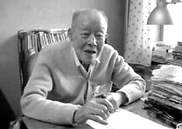题型:阅读选择 题类:模拟题 难易度:普通
2017年广东省深圳市罗湖区中考模拟(二模)英语试卷
阅读下列短文,从下面每小题的A、B、C、D四个选项中选出最佳选项,并在答题卷上将相应的字母编号涂黑。
Zhou Youguang, known as the "father of Pinyin" was a Chinese. He was born in Changzhou, Jiangsu Province, on 13 January 1906. At the age of ten, he and his family moved to Suzhou, Jiangsu Province. In 1918, he entered Changzhou High School.
Zhou went to St. John's University in Shanghai in 1923. Then he went to Guanghua University in 1925. Later Zhou spent time in Japan as a foreign exchange student. After World War II, he moved to London, and then New York to work as a banker.
Zhou returned to China in 1949 to help his country build a modern economy(经济学). In 1955, the government invited him to make necessary changes to the Chinese language. It took him about three years to design Pinyin, and it was a success.
Today, with the wide use of computers and mobile phones, we use Pinyin to communicate with the world. The system is a bridge between China and the rest of the world."
Zhou died on 14 January 2017 at his home in Beijing, a day after his birthday. At the time, he was the 17th oldest living man in China.

试题篮